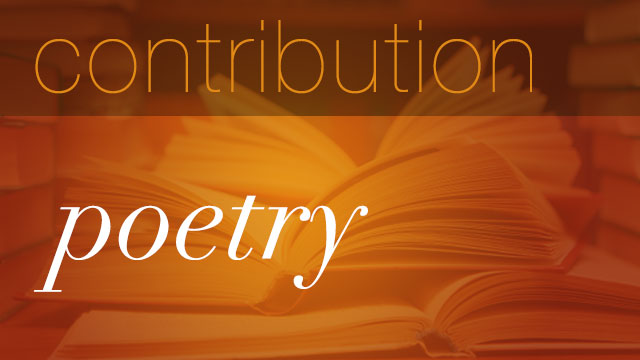All opinions are that of the author and not necessarily those of the website that it is published under.
X, the most common variable denoting an unknown, is a fitting moniker that mirrors the lost legacy of a man so many ideologues have adopted as their own. Malcolm X has suffered the same paradoxical affliction of many modern revolutionaries: to be immortalized in memory only to be lost in a fog of clichéd images and quotations. In the case of Malcolm, this misperception has carried over into the progressive movement, where Malcolm’s particular philosophy of activism is not only, not being implemented, but is also no longer understood.
Many may disregard the above statement as a generalized assumption. Malcolm still remains a symbol of social justice especially amongst the Left. But that is all Malcolm exists as, a symbol. A comparison of contemporary activist trends with a “Malcomist” philosophy, would find very little commonalities. In the past two decades the preponderant methodology of progressive activists has been civil disobedience, following the tradition of Martin Luther King and Gandhi. This was not always the case however, especially within circles of Black activism.
In the seventies, eighties, and early nineties the trend of black activism placed greater emphasis on a Malcolmist philosophy, as indicated by the teachings of Stokely Carmichael, Angela Davis, and the Black Panthers, as well as the revolutionary Afrocentric culture that permeated Black music, literature, and film. Those movements, while respecting the legacy of Martin, found the philosophy outdated. They instead chose to implement Malcolm’s vision of Black Nationalism. Unfortunately these movements came to an abrupt end in the eighties as they were systematically eviscerated due to the COINTEL PRO program and the introduction of crack into inner city neighborhoods (“To Disrupt, Discredit and Destroy” The FBI’s Secret War against the Black Panther Party, Ward Churchill). The following sections describe a contextualized Malcolm that desensationalizes the man and the message, providing a more accurate perspective of his philosophy.
Malcolm the not-so-Radical
One of the most iconic images of Malcolm is of him holding a shotgun while peering out his window. That, coupled with his famous sayings, “send them to the cemetery if they touch you” and “by any means necessary”, evoke a man who advocated for violence as a means towards social justice. It is common to find enthusiastic radicals who romanticize this militant notion (I myself did so when I was younger). This however, is a misconstrual of Malcolm’s activist philosophy. Before elaborating on Malcolm’s method, it must be emphasized that Malcolm only advocated violence in cases of self-defense. His inflammatory rhetoric during his time with the NOI, using phrases like “violent revolution” were balanced out by his appeal to always obey the law. And after his departure from the NOI, Malcolm only expressed violence as a justified and legal response to violence, “So I don’t believe in violence-that’s why I want to stop it. And you can’t stop it with love, not love of those things down there. No! So, we only mean vigorous action in self defense,” (X, Malcolm, and George Breitman. “After the Bombing.” Malcolm X Speaks: Selected Speeches and Statements. New York: Grove Weidenfeld, 1992. 164-65. Print.).
Protesting in our vernacular can refer to anything from a city sanctified demonstration to a peaceful violation of law. It is often conflated with “rallying” which connotes a public gathering for a specific organization or cause, where speeches and sometimes entertainment are performed for the audience. They are often used interchangeably and whether you agree with the proposed definitions or not, there is an explicit difference between the two that defines Malcolm’s stance: Malcolm didn’t agree with protesting (which he referred to as “nonviolence”). In fact he never protested. It conflicted with his adherence to the law and his view of self-defense. What Malcolm did do was hold rallies focused on mobilizing and empowering the community. This was in contrast to the logic of “nonviolence” which was to channel agency outwards and influence public perception to produce change.
This difference should demonstrate the direction of Malcolm and how he perceived true emancipation could be attained. Creating a robust community took precedence over creating public awareness, according to Malcolm’s philosophy. So instead of appealing to the public, Malcolm chose to concentrate on the inner city Black community, dealing with drug habilitation and even offering voter education seminars (http://www.blackpast.org/1964-malcolm-x-s-speech-founding-rally-organization-afro-american-unity). So if Malcolm was not interested in outward focused demonstrations, then was he truly as radical as we perceive him to be? Amongst current day progressives, Malcolm may have even been seen as a moderate, for he would have had a hard time aligning himself with the protests of modern day activists, who use peaceful methods of civic disruption to promote their causes.
Malcolm the Black Nationalist
One of Malcom’s most appealing qualities was his sense of universal justice. He had a holistic understanding of sociopolitical issues and spoke adamantly about them, even to the extent of eventually going against his own bigoted views. Even so, his priority lied with the emancipation of people of African descent. The organizations he formed reflected as much, such as Organization of Afro-American Unity. Describing it in his own words he says, “though Islam is my religious philosophy, my political, economic, and socialphilosophy is Black Nationalism” (http://americanradioworks.publicradio.org/features/blackspeech/mx.html). Although clearly a foundational principle of Malcom’s, it is a part of his philosophy that is overlooked. Perhaps because it is an uncomfortable notion for non-Blacks to consider, Malcolm is commonly typified exclusively as a revolutionary socialist. Although not mal-intended, this depiction is a corruption of the man’s legacy.
Malcolm prioritized Black issues because he deemed it a necessity, the only way that true emancipation would be achieved. Looking at the current state of Black America, it is hard to disagree with him. He wanted to rid the Black community of harms both internal and external, and make them self-sustainable. This goal is outlined in his speech at the Founding Rally of the OAAU, where he reads out the charter for the new organization, “In order for the Afro-Americans to control their destiny, they must be able to control and affect the decisions which control their destiny: economic, political, and social. This can only be done through organization.” (http://www.blackpast.org/1964-malcolm-x-s-speech-founding-rally-organization-afro-american-unity)
The importance of understanding the Black Nationalist view of Malcolm is because it is so intricately connected with his philosophy, that overlooking it is missing a key aspect of the rationale of Malcolm’s approach, which was solidifying one’s immediate network, in his case the Black community. Change comes in steps. Malcolm understood that. Universal justice is an ideal. Malcolm also understood that. For him, mobilizing and improving the conditions of the black community was a clear and vital step preceding the eventual goal of working towards a free society. It is an important managerial lesson for community organizers who fall victim to embarking on idealistic goals and compromising short, attainable ones.
Malcolm the Critical Thinker
The beautiful aspect of Malcom’s life that has made it such a compelling narrative is his evolution, transitioning from a hustler to a NOI minister and then making a second transition denouncing his previous bigoted beliefs. This aspect is often associated with Malcolm’s courage and zeal for justice. What should also be considered in this regard, is Malcolm’s intellect.
Malcolm’s critical thinking ability was so salient, that even when he preached white inferiority, his adversaries had trouble contradicting him. As a critical thinker he not only consistently challenged his own views and beliefs, he also stood as an anomaly against the progressive trends of his day. His stance on civil disobedience has already been discussed previously, but some of his other views reveal an individual more nuanced than is realized. While being an ardent supporter of social welfare and demilitarization, Malcolm also had what can be construed as conservative tendencies, defending gun rights, emphasizing entrepreneurship, and believing in traditional religious lifestyles. At the same time as a man of intense religious conviction, he also had secularist views, as can be seen from earlier quotations in this article.
It would be fallacious to speculate on whether Malcolm’s views would have changed in this current age, but in the sixties, an era defined by its challenge of conformation, Malcolm established his views, both political and civic, without apology or judgment. It is important for progressives, who often see themselves as the flag-bearers of critical thought, to scrutinize themselves and reevaluate positions or methods that are being taken. Solidarity does not constitute uniformity, and in today’s world, social media platforms are a convenient apparatus for monolithic thinking.
Conclusion
Malcolm and Martin created a dialectic that propelled American consciousness to a new era. They represented the yin and yang of civil rights that formed a holistic coalition in advocating for social justice. With the absence of Malcolm’s methodology, the movement has become largely ineffective. Aptly stated by Naomi Klein, “It is a fact of the information age that too many movements spring up like beautiful flowers but quickly die off. It’s because they don’t have roots. And they don’t have long-term plans for how they are going to sustain themselves. So when storms come, they get washed away.” (http://www.sltrib.com/sltrib/world/52698475-68/movement-political-movements-street.html.csp). This article will hopefully serve as a base for critical dialogue among progressives, especially within the Black and Muslim communities. The tragic deaths of two Black males that made news headlines revived the conscious of Americans in regards to issues pertaining to Black America. Islamophobia, is a growing phenomenon that is not only alienating American Muslims but also dictating policies that are counterintuitive to the welfare of Americans. Malcolm X outlined a strategy to organize and empower in a climate of hate and sociopolitical inferiority. If we want real change, it’s time we resurrect Malcolm X.
All opinions are that of the author and not necessarily those of the website that it is published under.





